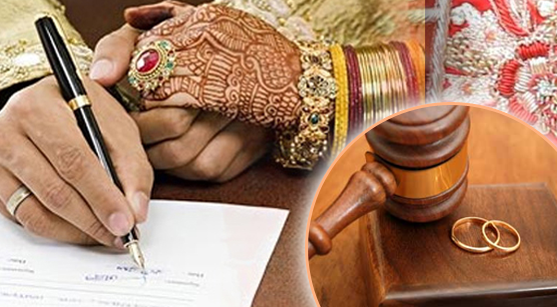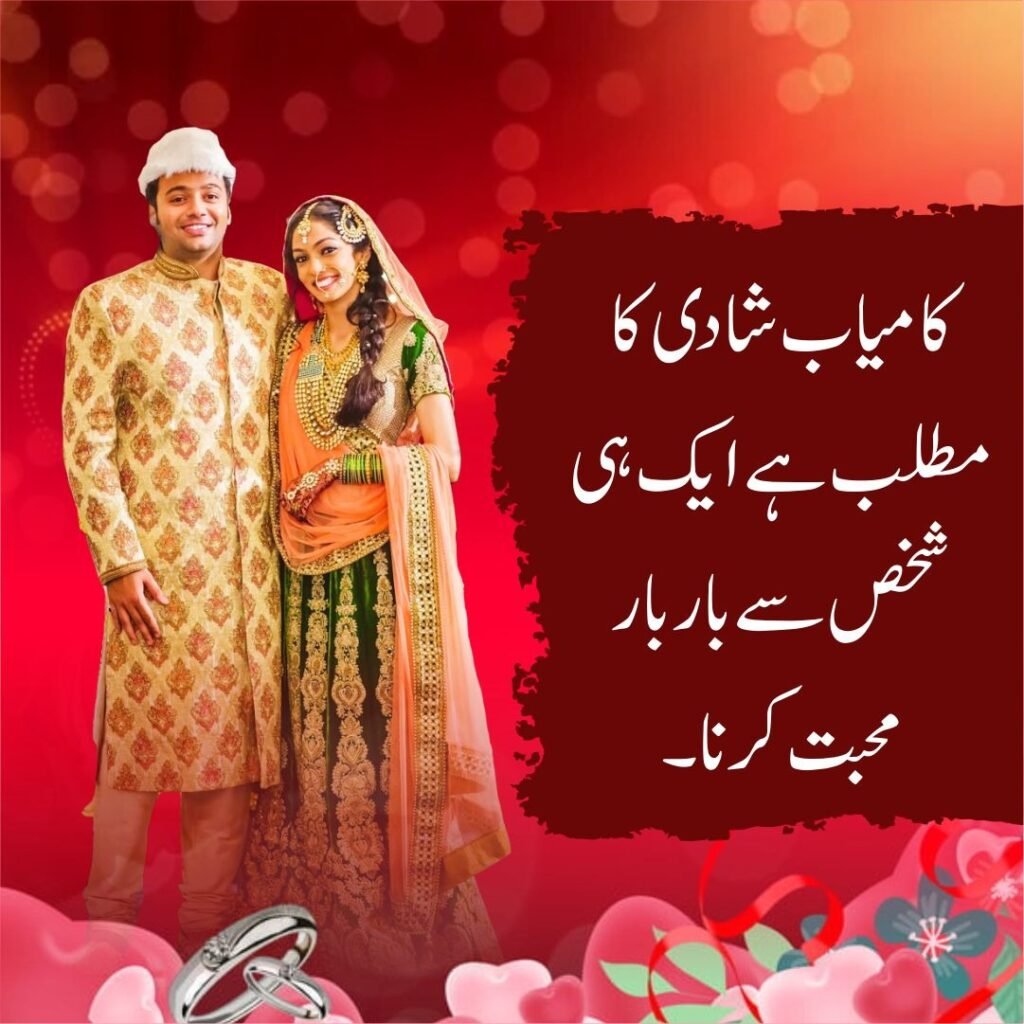Court Marriage Process in Pakistan is Very Simple
Court Marriage process in Pakistan protects your legal rights. The court marriage fee is less than you imagine. Court Marriage in Pakistan ensures a smooth and secure process. It is a legal way to avoid wedding complexities.
Court Marriage: A Hassle-Free Path to Legal Matrimony and Protection
Court Marriage as a Legal Union provides couples with a streamlined and hassle-free process to formalize their relationship under the law. It is a simple yet effective way to ensure the marriage is legally recognized, offering couples full legal protection and rights.
Privacy and Simplicity: The Advantages of Court Marriage in Challenging Circumstances
This court marriage process is especially beneficial for those seeking privacy or facing societal or familial challenges. By opting for a court marriage, couples can bypass the complexities of traditional wedding arrangements and focus on beginning their lives together with clarity and mutual understanding.
Embracing Simplicity: The Modern Appeal of Court Marriage in Pakistan
Embarking on the journey of matrimony through court marriage unveils a distinctive legal union. Contrary to traditional ceremonies, it embraces a streamlined legal process. This alternative route is gaining popularity for its simplicity and efficiency, offering couples a modern approach to solemnize their commitment within the bounds of the law.
Navigating the Legal Landscape: What is Court Marriage?
Court marriage stands as a legal framework for couples seeking union without the extravagance of traditional ceremonies. It involves a simple, formal procedure conducted in the presence of a marriage officer. This legal avenue provides a straightforward path for couples to declare their commitment and ensures the sanctity of the marital bond according to legal standards.
Decoding the Process: Step-by-Step Guide to Court Marriage
Unraveling the intricacies of court marriage, the step-by-step guide offers clarity to couples navigating this legal terrain. From filing an application to obtaining the marriage certificate, each stage contributes to the seamless realization of marital vows. Understanding this process is vital for couples opting for a court marriage, simplifying their journey into matrimony.
Court Marriage Essentials: Documents and Requirements
Before entering the court marriage process, couples must assemble essential documents and meet specific legal requirements. This includes proof of identity, residence, and age. Complying with these prerequisites ensures a smooth execution of the court marriage process, emphasizing the significance of legal compliance in formalizing marital bonds.
The Significance of Court Marriage in Modern Society
In the tapestry of modern society, court marriage emerges as a symbol of progressive values. Stripping away the elaborate rituals, it highlights the essence of commitment, equality, and legal recognition. The significance lies in embracing a contemporary perspective on matrimony, reflecting the evolving dynamics of relationships in the ever-changing landscape of societal norms.
Legal Benefits of Opting for Court Marriage
Beyond the emotional aspect, court marriage opens doors to a myriad of legal benefits. From simplified legal procedures to tax advantages, this option provides couples with tangible advantages. Understanding and harnessing these benefits contributes to the pragmatic appeal of court marriage in the eyes of those seeking a union grounded in both love and legal wisdom.
Choosing Court Marriage: A Contemporary Perspective
Choosing court marriage signifies a departure from traditional norms, embodying a contemporary perspective on love and commitment. Couples opting for this path prioritize simplicity, efficiency, and legal recognition overelaborate ceremonies. It reflects a conscious choice to embrace a modern approach to matrimony, resonating with those seeking a marriage rooted in the essence of their relationship.
Court Marriage vs. Traditional Ceremonies: A Comparative Analysis
Contrasting court marriage with traditional ceremonies illuminates the divergent paths couples can take to solemnize their union. While traditional ceremonies embody cultural rituals and social celebrations, court marriage stands as a legal contract. This comparative analysis unveils the distinct characteristics of both options, enabling couples to make informed choices aligned with their values.
Celebrating Diversity: Cultural Aspects of Court Marriage
Court marriage, while rooted in legality, embraces cultural diversity. Couples infuse personal customs into the proceedings, making it a unique celebration. This fusion of legal formalities and cultural richness reflects the evolving tapestry of matrimony, acknowledging and respecting the diversity that couples bring into their union.
Legal Rights and Responsibilities After Court Marriage
Post-court marriage, couples inherit a set of legal rights and responsibilities. These encompass financial obligations, inheritance, and spousal support. Understanding these legal intricacies is crucial for a harmonious marital journey, as it defines the framework within which spouses navigate their rights and duties, reinforcing the significance of informed decision-making post-union.
The Role of Witnesses in Court Marriage Proceedings
Witnesses play a pivotal role in court marriage proceedings, attesting to the authenticity of the union. Their presence ensures the legality of the marriage, adding a layer of formality. Choosing witnesses wisely is essential, as their testimony contributes to the validation of the marriage, underscoring the collaborative nature of court marriage.
DIY Court Marriage: Is it a Viable Option?
The concept of Do-It-Yourself (DIY) court marriage is gaining traction, allowing couples to navigate the legal process independently. While it offers autonomy, careful consideration is vital. Couples must meticulously adhere to legal requirements. DIY court marriage demands thorough research and understanding of procedures, emphasizing that autonomy comes with the responsibility of ensuring the validity and legality of the union.
Court Marriage and Religion: Navigating Cultural Sensitivities
Navigating the intersection of court marriage and religion requires delicate consideration. Couples often face cultural sensitivities tied to religious beliefs. Balancing legal obligations with respect for religious customs is essential. Acknowledging and addressing these sensitivities ensures a harmonious union that respects both legal frameworks and cultural traditions, underscoring the importance of navigating this delicate balance.

Some Usefull Links
- Online Nikah
- Online Shadi
- Pakistani Nikah Nama
- Online Nikah in Pakistan
- NADRA Marriage Certificate
- Online nikah & Marriage Documents
- Online Nadra Marriage Certificate
- English Nikah Nama Form
- Online Marriage in Lahore
- Online Marriage in Urdu
- Court Marriage in Pakistan
- Online Shadi in Pakistan
- Online Nikah nama Form
- NADRA Marriage Certificates
- Court Marriage Procedure
- Nikah Khawan Services
- Court Marriage & Nikah
- Court Marriage Law
- Court Marriage & Civil Marriage
- Nikah Khawan
- Online Marriage in Pakistan
- Online Nikah Service For Overseas Pakistanis
- Online Nikah in Islam
- Is Online Marriage Valid?



To ensure the validity of a court marriage, legal safeguards are paramount. Adhering to procedural requirements and documentation is crucial. This meticulous approach safeguards against potential legal challenges in the future. Couples must prioritize compliance with legal standards, reinforcing the notion that a valid court marriage is built on a foundation of meticulous adherence to legal safeguards.
Court Marriage During the Pandemic: Special Considerations
The pandemic has necessitated special considerations for couples opting for court marriage. Social distancing measures and restricted gatherings impact the ceremony’s dynamics. Digital alternatives and streamlined processes have emerged, ensuring the continuation of court marriages while prioritizing safety. Adapting to these unique circumstances reinforces court marriage’s resilience and adaptability in the face of unforeseen challenges.
Public Perception: Societal Attitudes Toward Court Marriage
Public perception of court marriage continues to evolve. While traditional ceremonies hold cultural weight, the modern shift towards court marriage is challenging societal attitudes. Acceptance grows as couples prioritize legal recognition. Changing perceptions reflect a societal acknowledgment of diverse paths to matrimony, highlighting court marriage as a legitimate and increasingly embraced choice within the broader cultural landscape.
Legal Support: The Role of Lawyers in Court Marriage
Legal support is integral to the court marriage process. Lawyers guide couples through legal nuances, ensuring compliance and smooth proceedings. Their expertise is invaluable in handling documentation, addressing legal intricacies, and safeguarding the rights of both parties. The role of lawyers in court marriage underscores the importance of professional assistance in navigating the complexities of legal matrimony.
Evolving Trends: Court Marriage in the 21st Century
In the 21st century, court marriage reflects evolving societal trends. Couples prioritize efficiency, legal recognition, and personal choice over traditional ceremonies. The rise of individualism and changing social dynamics contribute to the trend, marking court marriage as a reflection of contemporary values and a departure from conventional norms, showcasing matrimony’s adaptability to societal shifts.
International Perspectives on Court Marriage: A Comparative Study
Examining court marriage internationally reveals diverse approaches and legal frameworks. Cultural, legal, and social variations impact the practice globally. Comparative studies showcase how different jurisdictions address court marriage, providing insights into the broader global landscape of legal unions. Understanding these international perspectives enriches the discourse on court marriage, highlighting its universal relevance amidst cultural diversity.
Unlocking Matrimony: The Basics of Court Marriage
Unlocking the door to matrimony, court marriage offers a straightforward path to legal union. Stripping away elaborate ceremonies, it focuses on simplicity, efficiency, and legal recognition. Couples opting for this route embark on a journey that values the essence of commitment within the legal framework, reflecting the evolving dynamics of contemporary relationships.
Legal Formalities: A Comprehensive Guide to Court Marriage
Navigating the legal landscape of court marriage requires a comprehensive understanding of the formalities involved. From filing an application to obtaining the marriage certificate, each step contributes to the legally binding process. This comprehensive guide ensures couples are well-informed, minimizing uncertainties and paving the way for a seamless transition into marital union within the confines of the law.


Streamlining the Process: Step-by-Step Court Marriage Procedure
Streamlining the court marriage process involves a systematic approach. From submission of documents to the solemnization ceremony, a step-by-step procedure ensures clarity and adherence to legal protocols. This efficient process not only simplifies the union but also exemplifies the commitment of couples to a legal matrimony, emphasizing the importance of a methodical approach.
Essential Documents for Court Marriage: A Checklist
Embarking on court marriage necessitates a meticulous checklist of essential documents. Proof of identity, residence, and age are fundamental prerequisites. A comprehensive understanding of these requirements ensures a smooth process, emphasizing the significance of careful preparation. The checklist serves as a guide for couples, underscoring the importance of meeting all legal documentation criteria for a valid court marriage.
Significance of Court Marriage in Modern Relationships
In the landscape of modern relationships, court marriage holds significant value. Embracing simplicity and legal recognition, it aligns with contemporary values. Couples choosing this path prioritize commitment over elaborate rituals, marking a paradigm shift in matrimony. The significance lies in the acknowledgment of evolving relationship dynamics, emphasizing a choice rooted in love and legal wisdom.
Financial Equity: Property Rights in Court Marriage
Court marriage transforms the landscape of financial equity within matrimony. Spouses gain equal property rights, fostering a sense of financial partnership. This legal framework ensures a fair distribution of assets, challenging traditional norms. The impact on financial equity underscores court marriage’s role in reshaping familial financial structures, offering a progressive approach to property rights and wealth distribution within the marital unit.
Navigating Challenges: Societal Perceptions of Court Marriage
Despite its legal validity, court marriage faces societal perceptions and challenges. Couples navigating this path often encounter social stigma and familial resistance. Navigating these challenges requires resilience, as societal norms and bureaucratic complexities may pose hurdles. Choosing court marriage becomes a journey of overcoming stereotypes, emphasizing personal choice and the courage needed to pursue non-traditional paths to matrimony.
Pandemic Considerations: Court Marriage in Unprecedented Times
The pandemic introduces unique considerations for couples opting for court marriage. Social distancing measures and restricted gatherings impact the ceremony’s dynamics. Digital alternatives and streamlined processes have emerged, ensuring the continuation of court marriages while prioritizing safety. Adapting to these unprecedented times reinforces court marriage’s resilience and adaptability, highlighting its continued relevance in changing circumstances.
Contact today for Court marriage!
Online Marriage is a growing trend where couples meet and marry through digital means, such as dating websites, social media, and matchmaking apps. It is becoming more common as technology advances, and people seek alternative ways to find love and companionship.
Role of Lawyers in Court Marriage: Legal Support and Guidance
Lawyers play a pivotal role in ensuring the smooth execution of court marriage. Their expertise guides couples through legal nuances, from documentation to compliance with jurisdiction-specific requirements. Legal support is essential for addressing intricacies, safeguarding rights, and navigating potential challenges. The role of lawyers underscores the importance of professional assistance in the complex legal landscape of matrimony.
Witnesses in Matrimony: Their Significance in Court Marriage
Witnesses hold a crucial role in court marriage proceedings, validating the authenticity of the union. Their presence adds a layer of formality, contributing to the legal recognition of the marriage. Careful selection of witnesses is essential, as their testimony ensures the validity of the union, emphasizing the collaborative and formal nature of court marriage in the eyes of the law.
DIY Court Marriage: Pros, Cons, and Considerations
The concept of Do-It-Yourself (DIY) court marriage offers autonomy to couples navigating the legal process independently. While it provides freedom, careful consideration is vital. Couples must meticulously adhere to legal requirements, ensuring the validity and legality of the union. DIY court marriage demands thorough research and understanding of procedures, emphasizing that autonomy comes with the responsibility of informed decision-making.
Cultural Sensitivities: Religion and Court Marriage Dynamics
Balancing cultural sensitivities, especially related to religion, is crucial in court marriage. Couples often face challenges reconciling legal obligations with respect for religious customs. Acknowledging and addressing these sensitivities ensures a harmonious union that respects both legal frameworks and cultural traditions. Navigating the dynamics between religion and court marriage highlights the delicate balance required for a successful and culturally sensitive matrimony.
Inheritance Implications: Court Marriage’s Impact on Family Wealth
Court marriage significantly impacts inheritance dynamics. Spouses gain equal property rights, fostering financial equity. This legal framework ensures a fair distribution of assets, challenging traditional norms. The impact on inheritance underscores court marriage’s role in reshaping familial financial structures, offering a progressive approach to property rights and wealth distribution within the marital unit.
21st Century Trends: The Evolution of Court Marriage Practices
In the 21st century, court marriage reflects evolving societal trends. Couples prioritize efficiency, legal recognition, and personal choice over traditional ceremonies. The rise of individualism and changing social dynamics contribute to the trend, marking court marriage as a reflection of contemporary values and a departure from conventional norms, showcasing matrimony’s adaptability to societal shifts.
International Perspectives on Court Marriage: A Comparative Analysis
Examining court marriage internationally reveals diverse approaches and legal frameworks. Cultural, legal, and social variations impact the practice globally. Comparative studies showcase how different jurisdictions address court marriage, providing insights into the broader global landscape of legal unions. Understanding these international perspectives enriches the discourse on court marriage, highlighting its universal relevance amidst cultural diversity.
Public Perception Shift: Embracing Diversity in Matrimony
Public perception of court marriage is shifting, reflecting an embrace of diversity in matrimony. While traditional ceremonies hold cultural weight, the modern shift towards court marriage challenges societal attitudes. Acceptance grows as couples prioritize legal recognition, marking court marriage as a legitimate and increasingly embraced choice within the broader cultural landscape. The shift in public perception underscores the evolving nature of societal norms.
Legal Safeguards: Ensuring the Validity of Court Marriage
To ensure the validity of a court marriage, legal safeguards are paramount. Adhering to procedural requirements and documentation is crucial. This meticulous approach safeguards against potential legal challenges in the future. Couples must prioritize compliance with legal standards, reinforcing the notion that a valid court marriage is built on a foundation of meticulous adherence to legal safeguards.
Major Characteristics of the Court Marriage Process in Pakistan
- The court marriage process in Pakistan is a straightforward way to legally solemnize a marriage in Pakistan.
- Couples opting for the court marriage process in Pakistan enjoy privacy and legal protection.
- The court marriage process in Pakistan begins with verifying the eligibility of both individuals.
- A valid CNIC is required to initiate the court marriage process in Pakistan in Pakistan.
- The court marriage process in Pakistan requires an affidavit of free will from both parties.
- Witnesses play an essential role in the court marriage process in Pakistan, as their presence validates the union.
- During the court marriage process in Pakistan, the couple must provide proof of age and identity.
- The court marriage process in Pakistan is conducted at a family or judicial court.
- Couples seeking a swift union prefer the court marriage process in Pakistan for its simplicity.
- The court marriage process in Pakistan in Pakistan is legally binding and recognized nationwide.
- A judge officiates the marriage ceremony during the court marriage process in Pakistan.
- The court marriage process in Pakistan does not require extravagant ceremonies or rituals.
- The court marriage process in Pakistan is ideal for couples seeking a private marriage.
- Registering the marriage with NADRA is a vital step in the court marriage process in Pakistan.
- The court marriage process in Pakistan is completed once the couple receives the court marriage certificate.
- Couples often choose the court marriage process in Pakistan to avoid societal pressures.
- The court marriage process in Pakistan ensures that both parties marry with mutual consent.
- The court marriage process in Pakistan protects the legal rights of the bride and groom.
- The affordability of the court marriage process in Pakistan makes it a popular choice for many.
- The court marriage process in Pakistan eliminates the need for large gatherings and expenses.
- By following the court marriage process in Pakistan, couples can bypass unnecessary formalities.
- The court marriage process in Pakistan provides a quick solution for couples ready to wed.
- Confidentiality is a hallmark of the court marriage process in Pakistan in Pakistan.
- The court marriage process in Pakistan is open to individuals from all religious backgrounds.
- Couples marrying against their families’ wishes often rely on the court marriage process in Pakistan.
- Legal assistance is often sought to ensure the court marriage process in Pakistan goes smoothly.
- The court marriage process in Pakistan guarantees a legally recognized union for couples.
- Couples can avoid family conflicts by opting for the court marriage process in Pakistan.
- The court marriage process in Pakistan ensures all documentation is in order for a valid marriage.
- Individuals seeking a second marriage must present proof of divorce during the court marriage process in Pakistan.
- The court marriage process in Pakistan can be completed in a single day with proper preparation.
- Witnesses must provide their CNICs as part of the court marriage process in Pakistan.
- An official record is maintained as part of the court marriage process in Pakistan in Pakistan.
- Lawyers can assist couples during the court marriage process in Pakistan for legal clarity.
- The court marriage process in Pakistan includes a thorough verification of all submitted documents.
- Both parties must appear in person to finalize the court marriage process in Pakistan.
- The court marriage process in Pakistan is an accessible option for couples from all walks of life.
- Couples can avoid social scrutiny by opting for the court marriage process in Pakistan.
- The court marriage process in Pakistan is often chosen by couples from different communities.
- For a stress-free union, the court marriage process in Pakistan is the best legal option.
- The court marriage process in Pakistan protects couples from undue interference.
- Couples receive a marriage certificate as proof of completion of the court marriage process in Pakistan.
- The court marriage process in Pakistan aligns with the laws of Pakistan, ensuring legal validity.
- NADRA registration after the court marriage process in Pakistan secures the marriage’s official status.
- The court marriage process in Pakistan is commonly used by couples in urban areas of Pakistan.
- Simplicity and legality are the defining features of the court marriage process in Pakistan.
- Proper documentation is key to a successful court marriage process in Pakistan.
- The court marriage process in Pakistan offers a hassle-free path to marital happiness.
- Legal experts streamline the court marriage process in Pakistan for couples unfamiliar with the procedure.
- By choosing the court marriage process in Pakistan, couples prioritize their love and commitment over societal norms.

